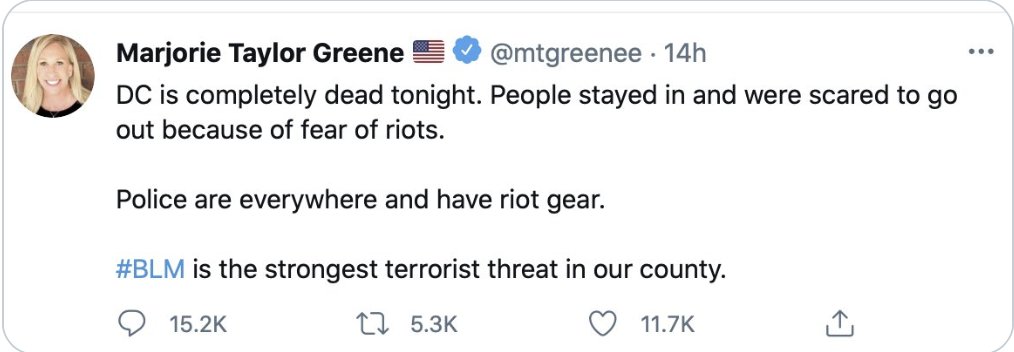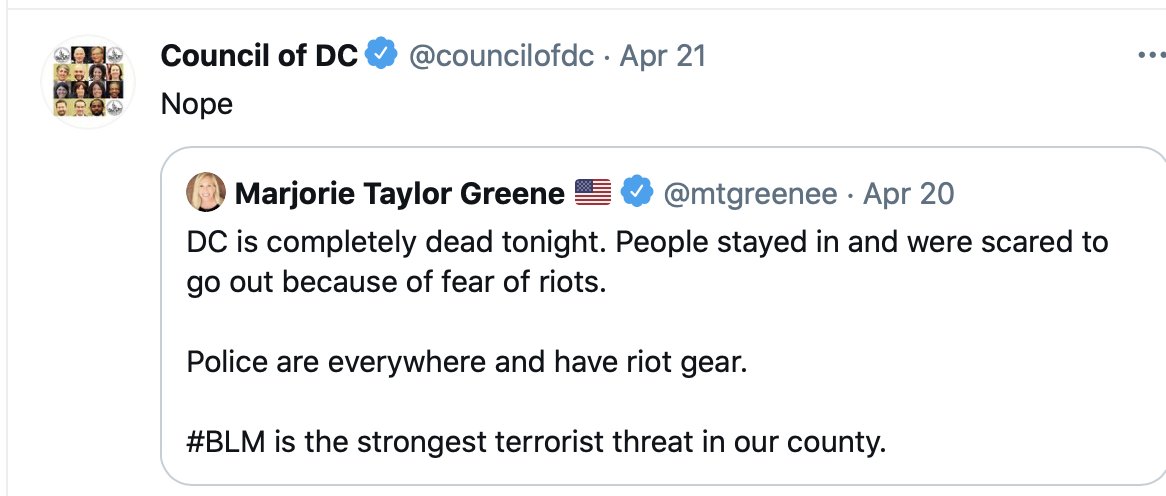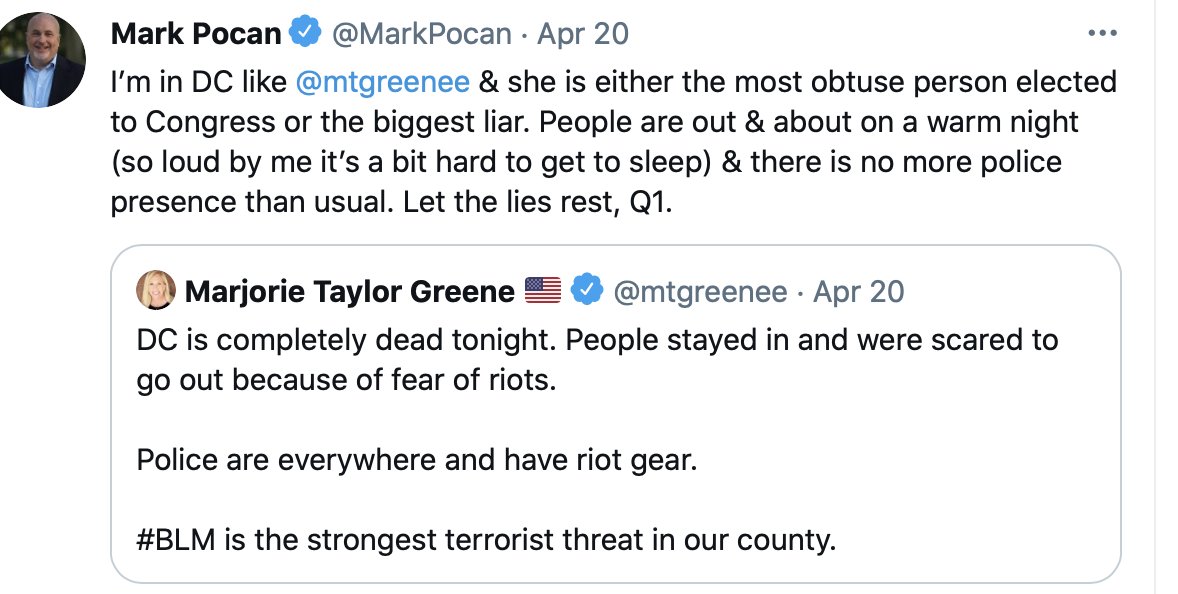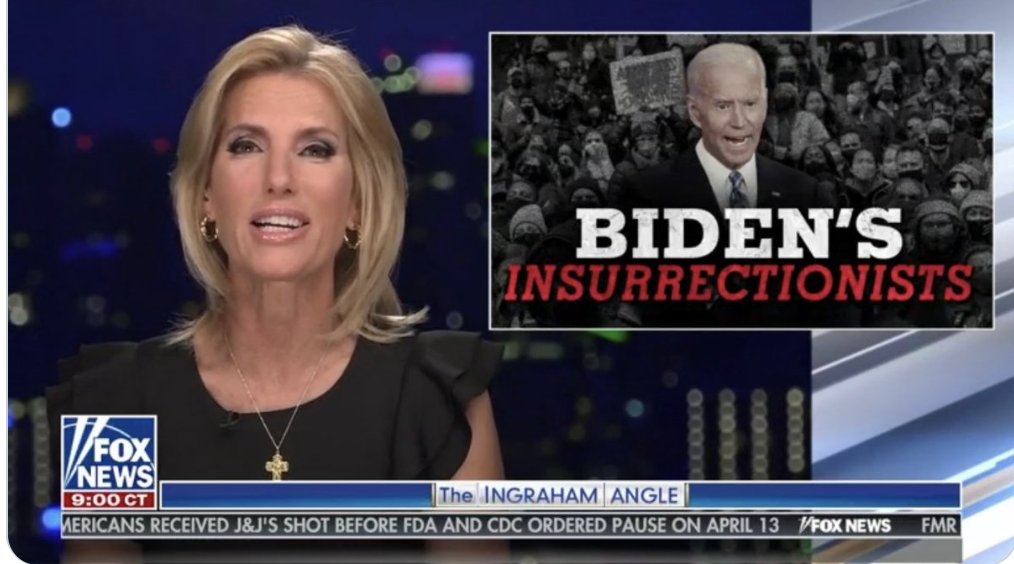
The Radicalization of the Republican Party
I recorded another YouTube video here:
If you prefer to read, I’ll link to an [edited] transcription in the next tweet.
Some people like to stay on Twitter with threads, so after I take a break ☕️ . . .
I recorded another YouTube video here:
If you prefer to read, I’ll link to an [edited] transcription in the next tweet.
Some people like to stay on Twitter with threads, so after I take a break ☕️ . . .
. . . I’ll come back and see if I can post the material as a thread.
(I may find that it’s too long. I like to keep threads under about 20 tweets).
The edited transcription is here: terikanefield.com/the-radicaliza…
Meanwhile, it's still morning in California, so time for more ☕️.
1/
(I may find that it’s too long. I like to keep threads under about 20 tweets).
The edited transcription is here: terikanefield.com/the-radicaliza…
Meanwhile, it's still morning in California, so time for more ☕️.
1/
2/ Okay, Video Summary as Twitter Thread.
A few days ago, Ted Cruz published an Op-Ed in the WSJ, and Tweeted the conclusion:
Yes, he's admitting that he takes corporate money in exchange for doing their bidding. (But we knew that.) Also: Ted Cruz turn away corporate money? 🤣
A few days ago, Ted Cruz published an Op-Ed in the WSJ, and Tweeted the conclusion:
Yes, he's admitting that he takes corporate money in exchange for doing their bidding. (But we knew that.) Also: Ted Cruz turn away corporate money? 🤣
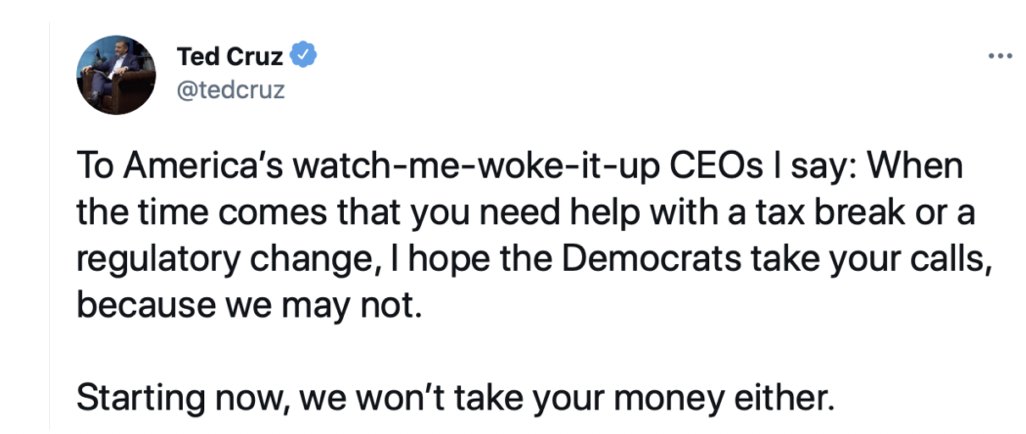
3/ But here’s what I find intriguing: Are the right wing extremists and Corporate America on a verge of a breakup? Is Ted Cruz singing, “You’ll be back?”
Or is it just a lover’s quarrel?
By right-wing extremists, I mean these guys:
Or is it just a lover’s quarrel?
By right-wing extremists, I mean these guys:

4/ Remember, the Republican Party started out as the anti-slavery party of business and industry. (These things went together. The northern economy was based on industry business, the South was based on the plantation system.)
5/ By the 1920s, the GOP still represented business and factory owners. Democrats were coming to represent workers and laborers.
Check out the income inequality in the 1920s:
newyorker.com/news/john-cass…
The rich were very rich, the poor were very poor, and it was hard to move up.
Check out the income inequality in the 1920s:
newyorker.com/news/john-cass…
The rich were very rich, the poor were very poor, and it was hard to move up.
6/ Income inequality was like today with a few key differences: There was no social security or worker protections, and very few regulations: Business could do things that are illegal today: they could fix prices, manipulate markets, and basically cheat in lots of ways. 

7/ The New Deal (1930s) changed all that and gave us a middle class in the 1950s.
Another difference: Blacks were left out. Racial segregation was legal. In some places, Black who tried to vote were killed.
Another difference: Blacks were left out. Racial segregation was legal. In some places, Black who tried to vote were killed.
8/ Meanwhile, some Republicans wanted to roll back the New Deal and get rid of those annoying regulations.
The problem was those policies weren't popular with most people because they favored the rich and most people aren’t rich.
The problem was those policies weren't popular with most people because they favored the rich and most people aren’t rich.
9/ This brings us to what Prof. Daniel Ziblatt calls the “conservative dilemma" which goes like this: So how can conservatives win national elections with unpopular economic policies?
The anger generated among some whites by the Civil Rights movement gave Republicans an idea💡
The anger generated among some whites by the Civil Rights movement gave Republicans an idea💡

10/ Idea: Invite the angry whites into the party so they can get enough votes for the economic legislation they wanted.
Republicans invited them in with dog whistles.
For more on that, see my recent Washington Post piece.
washingtonpost.com/outlook/2021/0…
Republicans invited them in with dog whistles.
For more on that, see my recent Washington Post piece.
washingtonpost.com/outlook/2021/0…

11/ Reagan famously described his coalition as a three-legged stool: Strong defense, limited government, and traditional values.
These “legs” are also dog-whistle-y.
Strong defense meant anti-communism. Communism was also a buzzword to denigrate things like social security.
These “legs” are also dog-whistle-y.
Strong defense meant anti-communism. Communism was also a buzzword to denigrate things like social security.
12/ “Limited government” meant get rid of the New Deal and laws that regulated industry.
After the Civil Rights movement, it also meant get rid of federal protections in place to protect minorities.
After the Civil Rights movement, it also meant get rid of federal protections in place to protect minorities.
13/ Traditional sounded good, but we know from recent Republican behavior it doesn’t mean that you shouldn’t cheat on your wife or run around with underage girls.
It was mostly a code phrase for women in the home and denying rights to LGBTQ.
It was mostly a code phrase for women in the home and denying rights to LGBTQ.
14/ The deal the corporate folks made was this: We’ll help overturn Roe V. Wade and keep minorities in their places
In exchange, you let us have the economic policies we want.
Conservative dilemma solved.
In exchange, you let us have the economic policies we want.
Conservative dilemma solved.
15/ Check out what happened when Reagan started enacting his “pro-business” agenda.
Trickle-down economics? Don’t make me laugh.
What happened next was that the extremists in the Republican Party started getting more powerful, thus steering the Party to the right.

Trickle-down economics? Don’t make me laugh.
What happened next was that the extremists in the Republican Party started getting more powerful, thus steering the Party to the right.


16/ Pierson and @Jacob_S_Hacker In⤵️explain that the GOP leadership started outsourcing voter mobilization to Fox News and groups like the NRA.
At first, this was a boon to GOP candidates because Fox could get them elected.
But outsourcing voter mobilization had drawbacks.
At first, this was a boon to GOP candidates because Fox could get them elected.
But outsourcing voter mobilization had drawbacks.

17/ FOX and the NRA exerted control over GOP officials, who were forced to cater to increasingly radicalized demands.
Fox and the NRA also backed increasingly extremists candidates.
Soon much of the GOP leadership were basically these guys but in suits and better haircuts:
Fox and the NRA also backed increasingly extremists candidates.
Soon much of the GOP leadership were basically these guys but in suits and better haircuts:

18/ Then came Trump, who threw out the dog whistles.
He called white supremacists brandishing the Confederate flag "very fine people."
When Trump did things like encouraging an actual attack on Congress to overthrow an election, the Republican leadership had a choice.
He called white supremacists brandishing the Confederate flag "very fine people."
When Trump did things like encouraging an actual attack on Congress to overthrow an election, the Republican leadership had a choice.
19/ It was their chance to say “Whoops! We shouldn’t have let these extremists into the Republican Party, we are going to throw them out.”
But they won’t because without the white supremacists they won’t have enough votes to win elections.
But they won’t because without the white supremacists they won’t have enough votes to win elections.
20/ And they can’t throw out the extremists because most of the leadership of the GOP are now right wing extremists. What are they going to do? Throw themselves out?
They should, but they won’t.
They should, but they won’t.

21/ McConnell tried to walk a narrow line, as Republicans had done in the past. He nodded to the insurrectionists by voting to acquit Trump.
He then tried to keep the support of moderates by announcing that Trump was “morally and practically responsible for the insurrection.”
He then tried to keep the support of moderates by announcing that Trump was “morally and practically responsible for the insurrection.”
22/ This attempt to play both sides didn’t work. Corporations withdrew their support.
McConnell then pivoted to fundraising from individual donors (the radicalized part of the base) by stoking conspiracy theories.
yahoo.com/news/republica…
McConnell then pivoted to fundraising from individual donors (the radicalized part of the base) by stoking conspiracy theories.
yahoo.com/news/republica…
23/ It worked. He (and others) hauled in more money from these individual donors than had in the past from corporate donors.
washingtonpost.com/business/2021/…
In light of all this, consider again Ted Cruz’s tweet and how the Republican Party has done a 180 turn (h/t @PietDalmolen
washingtonpost.com/business/2021/…
In light of all this, consider again Ted Cruz’s tweet and how the Republican Party has done a 180 turn (h/t @PietDalmolen
24/ They started as the anti-slavery party of industry, then came to represent the wealthy. They brought in extremists to get enough votes to pass an economic agenda that favors corporations.
Now the extremists have taken over the party and are threatening to throw THEM out.
Now the extremists have taken over the party and are threatening to throw THEM out.

I so didn't have room in the thread for everything.
In that video I talked for *17+ minutes*!
(Although people who know me in real life are not surprised that I can talk for 17+ minutes 😆)
In that video I talked for *17+ minutes*!
(Although people who know me in real life are not surprised that I can talk for 17+ minutes 😆)
https://twitter.com/Doodlebugisblue/status/1388994289993146371
• • •
Missing some Tweet in this thread? You can try to
force a refresh

